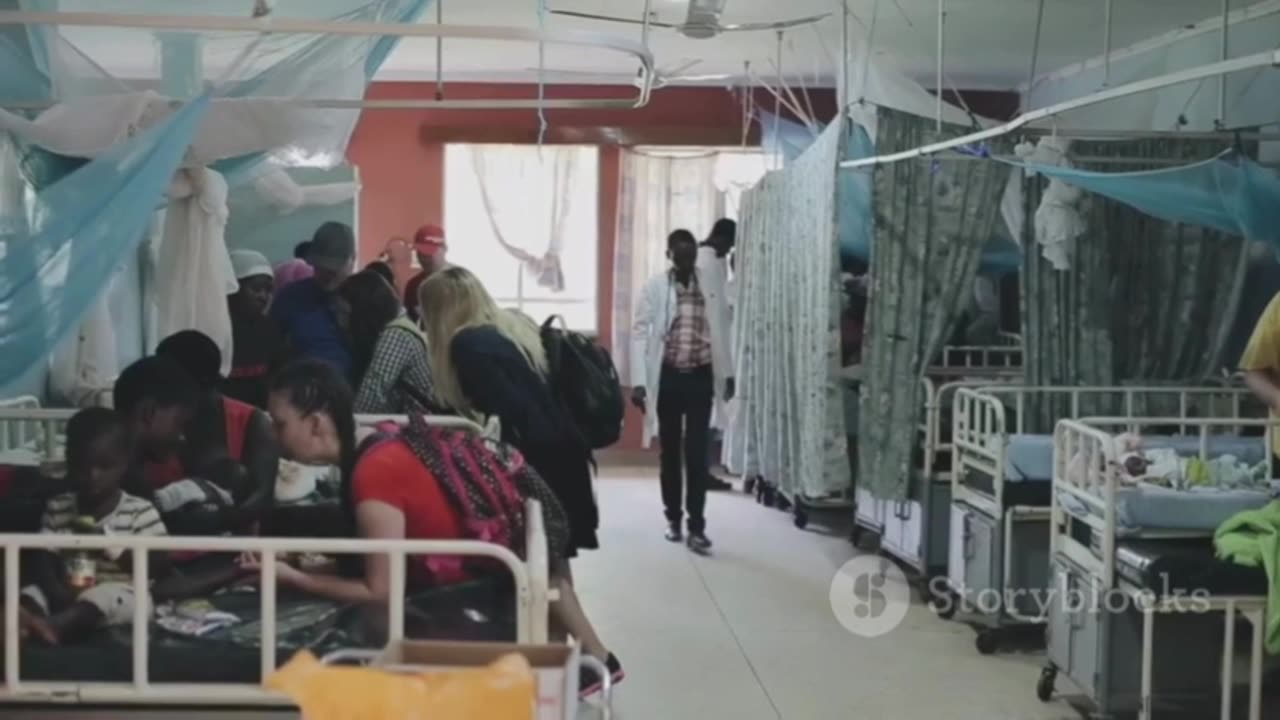Premium Only Content

Ethiopia Faces Severe Malaria Outbreak: A Public Health Crisis
Ethiopia is grappling with its most severe malaria outbreak in seven years, as reported by the World Health Organization (WHO), with over 7.3 million cases and 1,157 deaths recorded this year. The outbreak is primarily driven by Plasmodium falciparum, which accounts for approximately two-thirds of cases, predominantly in the western regions such as Oromia, Amhara, Southwest, and South Ethiopia. The majority of affected individuals are male, likely due to seasonal labor migration to high-risk areas. This surge in malaria cases, continuing beyond typical rainy seasons, is alarming and is compounded by reduced vector-control measures, population displacement from ongoing conflict, and the emergence of urban-friendly Anopheles stephensi mosquitoes. Climate variability and food insecurity further exacerbate the situation. The WHO has classified the national risk as high, underscoring the urgent need for improved vector-control strategies and a coordinated response from local and international health agencies. Protecting vulnerable populations and implementing effective measures to combat this public health emergency are crucial in preventing further spread and mitigating the impact of malaria in Ethiopia. Addressing these challenges requires immediate action as well as sustainable long-term health strategies.
-

Tundra Tactical
1 hour agoMatt Livelsberger: Master Spy or Tragic Downfall?
22 -

Rotella Games
6 hours agoMake the Manor Great Again | The Bread Chronicles | Day 2
28.4K1 -
 9:26
9:26
Jamesons Travels
1 day ago $3.67 earnedShawn Ryan CLOWNS Intel Expert & It GETS WEIRD!
19.8K4 -
 2:09:52
2:09:52
Jewels Jones Live ®
1 day agoTRUMP'S GOLDEN AGE | A Political Rendezvous - Ep. 105
21.1K20 -
 1:14:28
1:14:28
Michael Franzese
15 hours agoThe Hidden Cause of LA's Deadliest Fires in 2025?
50.7K97 -
 3:59:45
3:59:45
Bitcoin Sports Network
8 hours agoMax & Stacy Invitational Day 2 Part 1 - LIVE from El Salvador
110K10 -
 1:34:30
1:34:30
The Criminal Connection Podcast
5 days ago $2.11 earnedEL PACO: Gypsy Family Wars, Bare Knuckle Boxing, Assassinations and Spirits!
47K3 -
 51:43
51:43
Brewzle
1 day agoI Found Some AWESOME Stores Bourbon Hunting in Des Moines, IA
41.7K2 -
 1:16:54
1:16:54
Kyle Rittenhouse Presents: Tactically Inappropriate
1 day ago $2.99 earnedReplacing Matt Gaetz Pt. 2
25.9K13 -
 16:08
16:08
inspirePlay
1 day ago $0.78 earnedCan You Sniff Out the Golf Imposters Before They Wreck the Score?
20.6K3